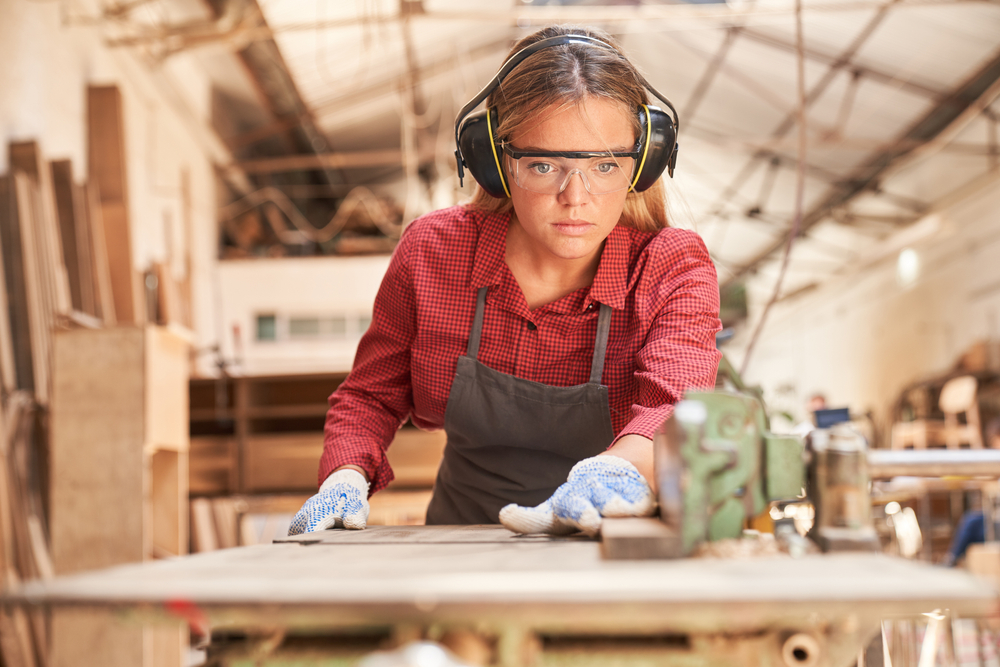
Whether you’re attending concerts, working, or doing some yard work, hearing protection is essential in keeping your ears safe from harmful noise levels. However, you could be left exposed to potential risks if any one of several possible factors interferes with your hearing protection’s effectiveness. In order to understand and effectively maximize the benefits of your ear protection, it’s essential to understand these issues.
Common reasons why hearing protection falters
Unexpected difficulties will occur even when you observe best practices. You use your earmuffs diligently at work, wear earplugs at concerts, and stay away from noisy situations whenever you can. However, the effectiveness of your hearing protection can be decreased by certain variables. Fortunately, you can ensure the protection of your hearing by becoming aware of these common pitfalls and making educated adjustments.
1. Specific situations call for specific types of hearing protection
The effectiveness of hearing protection can be reduced by choosing the wrong type for the given situation.
Generally speaking, hearing protection comes in two main categories:
- Earmuffs: Larger devices that cover the entire ear, resembling headphones.
- Earplugs: Little foam or rubber plugs that insert tightly into the ear canal.
Each kind has its best use case:
- Earmuffs are better for settings with intermittent noise, like a construction site where machinery starts and stops constantly.
- Locations with a continual noise threshold, like a factory floor or the cabin of an airliner, are the ideal times to utilize earplugs.
If you’re in a quiet setting and need to temporarily remove your hearing protection, earmuffs are easier to handle. Disposable earplugs, in contrast, can leave you vulnerable to hearing damage because they can be easily misplaced. Choosing the correct hearing protection for your needs is the first step toward protecting your hearing effectively.
2. Fit and function are affected by anatomy
Some devices will fit better than others depending on the size and shape of the individual’s ears. An average sized ear is what standard earplugs and earmuffs are designed for, but a more personalized solution might be necessary for your ear’s anatomy.
- Larger ear structures: Earmuffs may be uncomfortable if your ears are larger than average creating gaps in the seal.
- Smaller ear canals: If you have narrow ear canals, standard-sized earplugs may not create a proper seal, reducing their noise-blocking capabilities.
If your hearing protection isn’t fitting properly, you could become frustrated and decide to discontinue using them altogether which can imperil your hearing. If you spend substantial time in loud environments, consider investing in custom-molded earplugs or professionally fitted earmuffs. These personalized solutions provide optimal comfort and effectiveness, ensuring you stay protected in any scenario.
3. Failing to maintain or replace hearing protection
Like any piece of gear, hearing protection devices need upkeep to continue to be effective. Wear and tear, improper cleaning, and disregarding replacement schedules can all undermine their ability to protect your ears.
The following are a number of tips on how to care for hearing protection:
- Inspect for Damage: Regularly check the elastic band on earmuffs. A slack or stretched band can decrease their snug fit, diminishing their noise-blocking ability.
- Replace Cushions: The flexibility of earmuff cushions can diminish over time. Replace them as needed to maintain a tight seal.
- Clean Properly: Debris and earwax can build up on your hearing protection over time. Wash them regularly using manufacturer-recommended techniques to ensure cleanliness without damaging the material.
Your hearing protection will be less effective and potentially useless if you ignore these basic maintenance duties. In order to ensure reliable and efficient performance, and to extend their lifespan, it’s essential to keep these regular maintenance schedules.
The advantage of a hearing specialist
Make an appointment with us for an assessment if you think that your hearing protection may not be doing the job. After examining your devices, we can help you with a personalized solution that will work best for you.
Safeguarding your hearing is a lifelong commitment, and it’s worth the effort to make sure you’re using the right tools for the job. By addressing these common challenges, you can confidently protect your ears from harmful noise and preserve your hearing for years to come.